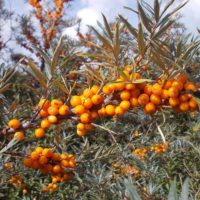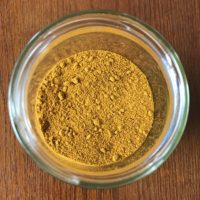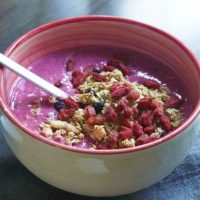Please note that this post may contain affiliate links and any sales made through such links will reward me a small commission – at no extra cost for you. PLEASE READ MY DISCLOSURE FOR MORE INFO.
We all know that the consumption of highly processed foods is linked with the development of many conditions from food sensitivities to cancer, but……….
Did You Know that over 70 % of the American grocery purchases contain moderately and highly processed foods?
https://academic.oup.com/ajcn/article/101/6/1251/4626878
That is a very high percentage and we will look to see how highly processed foods greatly impact your child’s health, learning and behaviour.
What are processed foods?
According to the dictionary ,the word “processed” means having been subjected to a special process or treatment (as in the course of manufacture) .
To make it simple a raw, natural food (e.g: carrots) altered in any way (packaged, frozen, canned, transformed, manufactured, cooked……..) is a PROCESSED FOOD.
As a result, not all processed foods are equal as some undergo minimal processing, such as boxed salads, vegetables.
Types of Processed Foods
1.Minimally Processed Foods
These foods are very slightly processed, and the properties of the food are not modified.
Examples:
-fresh fruits and vegetables that are packed, boxed, frozen or naturally dried or smoked (no additives)
-eggs, meat (fresh or frozen)
-whole grains: brown rice, quinoa, oats, corn, black rice…
-cream
-honey, spices
2.Foods that are basic processed
These are the foods that undergo some physical and chemical processing, without the addition of any chemicals, additives
Examples
-natural, unsweetened fruit juice -not from concentrate such as apple cider
-sugar
-maple syrup
-salt
-oil, butter, plain yogurt, sour cream, evaporated milk
-canned but unsalted/unsweetened foods such as canned fruits, vegetables and legumes, peanut butter, almond butter
-whole-grain flour, pasta
-refined grain flour pasta
-fresh ground meat, canned sardines or unsalted meat
The main dietary sources of sodium are common salt used in cooking and for seasoning and especially the increased amount of sodium compounds used in processed foods.
Sue Rodwell Williams
3.Moderate Processed Foods
These are the foods that are physically or chemically processed with the addition of sugars, salt, artificial colours, flavours…
Examples:
-salted or sweetened canned, frozen fruits, vegetables and legumes
-seasoned fresh or frozen meat and fish
-some types of cheese(cottage, ricotta, feta) flavoured yogurt, whipped cream
-salted butter, flavoured oil
-instant flavoured oats, hot breakfast cereal popcorn
-whole-grain breads, tortilla, crackers
-sweetened fruit juices, milk, soy milk
4.Highly Processed Foods
These are the multiple ingredients foods with added of preservatives, chemicals, artificial colours, flavours
Examples (long list)
-fruit juices, soda, sweetened drinks, sport drinks
-tomato sauces, salsa, hummus, veggie dips
-margarine, mayo, dressings, artificial sweeteners, ketchup, meat sauces
-whole wheat flour or white flour bread (where the first ingredients are NOT whole grain)
-baked, fresh, frozen desserts such as cookies, bars, fruit snacks, baked goods, ice cream
-most of the boxed children cereals
-canned (or package mix) prepared foods such as soups, canned beans in tomato sauce
-all frozen prepared foods or foods ready to microwave such as frozen pizza, lasagna, seasoned potato fries,meat-based frozen meals
– Mac and Cheese box
-processed cheese slices
-all deli foods: salami, ham, Bologna, sausages, hotdogs, lunch meats, Lunchables
-salty, seasoned snacks: chips, corn snacks, baked or fried snacks (over 90% of the snacks aisle)
Please see the chart of the least sugary cereals in my blog post 5 reasons why these Sugary Foods are harmful to your Child’s Health Learning and Behaviour”
Healthline reports that one serving of a frozen meat cheese or just simple cheese pizza can contain more than 700 mg of sodium, sometimes even more.

Watch the video to learn more about these unhealthy oils and better options for our family’s health.
What is the impact of HIGHLY PROCESSED foods on your child’s health, learning and behaviours?
Unhealthy fats
First of all, all highly processed foods are packed with unhealthy oils (trans fats), and we can think of bakery products, desserts, fast foods and much more.
Hydrogenated oils are toxic fats that harm our bodies and increase highly the risk of all serious diseases.
The study published in the Journal Of Nutrition and Metabolism on April 5, 2012 highlights the link between high consumption of Omega -6 Polyunsaturated fats (PUFA) and increase in chronic inflammatory diseases such as nonalcoholic fatty liver disease (NAFLD), cardiovascular disease, obesity, inflammatory bowel disease (IBD), rheumatoid arthritis, and Alzheimer’s disease (AD).
Oils high in Omega-6 fats that should be avoided are:
-sunflower oil
-canola oil
-corn oil
-soybean oil
-rice bran oil
-peanut oil
-sesame oil
-cottonseed oil

Preservatives and Artificial flavouring and colours
A large category of foods that are highly processed are sugary foods; please check my post on how sugary foods harm you child’s health, learning and behaviours 5 reasons why these Sugary Foods are harmful to your Child’s Health Learning and Behaviour”
The number of chemicals added to foods has greatly increased in the last few decades.
Preservatives are added to keep the foods more fresh, more appealing to consumers but all of these are harmful to our health in so many ways.
“In 2008 the Center for Science in the Public Interest (CSPI) in Washington, DC, petitioned the Food and Drug Administration (FDA) to ban artificial food dyes because of their connection to behavioural problems in children. Two years later a new CSPI report, Food Dyes: A Rainbow of Risks, further concludes that the nine artificial dyes approved in the United States likely are carcinogenic, cause hypersensitivity reactions and behavioural problems, or are inadequately tested.” https://www.ncbi.nlm.nih.gov/pmc/articles/PMC2957945/
These dyes are found in thousands of common foods found in the stores such as children breakfast cereals, candies, snacks, cakes, drinks, vitamins, Mac and Cheese and many others
In the Journal Of Pediatrics, July 2018 it is shown that consumption of foods high in direct additives – preservative, artificial colours are linked to thyroid hormone disruption carcinogenic activity for children’s health.
How to reduce /avoid the consumption of highly processed foods?
1. Prepare your meals with more fresh /frozen vegetable vs premade frozen foods from the store; plan to shop more in the fresh foods aisle.
2. Incorporate a fresh salad for every dinner, at least.
3. Avoid sugary beverages and foods and use stevia ( or a little raw honey) to prepare
homemade lemonades when you crave a sweet drink.
4. When cooking homemade meals, use a little Himalayan salt or Celtic salt instead of table salt.
5. For breakfast, cook some super grains (porridge) as they have amazing nutritional qualities that we all need such as quinoa, amaranth, black rice, teff
-use breakfast cereals that are low in sugar (see the list in my post 5 reasons why these Sugary Foods are harmful to your Child’s Health Learning and Behaviour”) and add some goodness (a few nuts, seeds, dried fruits of your choice)
6. Try to reduce or avoid highly processed meats that contain nitrates such as sausages, hotdogs, deli meats; instead, you may choose some healthier lunch ideas (hummus or bean spreads, with veggie sticks, leftover cooked meat slices, fish canned (sardines, smoked salmon on bread, eggs ).
7. Replace highly processed snacks with homemade snacks (homemade nutbars with date paste or honey) or baked chips (kale ), homemade tortilla chips with salsa.
8.Replace white flour bread with whole-grain (not whole wheat flour ) bread and bagels (in a label whole wheat or whole rye should be the first ingredients )
9. Use oils such as extra virgin olive oil or coconut oil in moderation as well as avocado
10. If you want to bake some fun, colourful desserts, use natural vegetable dyes -check this articlehttps://www.instructables.com/id/Blue-Foods-Colorful-cooking-without-artificial-dy/

Conclusion
The bottom line is that avoiding or limiting highly processed foods is not an easy, no planning job; at first, it requires us to acknowledge the health facts around the consumption of these foods and connection to our health and truly believe in it.
Planning ahead and making shopping decisions are very important in order to sustain our healthy choices; in regards with your young child ‘s health it is still great that You have control over the food choices ;an occasional slice of pie or chocolate will not harm your child but foods high in sugar eaten every day will certainly do.










